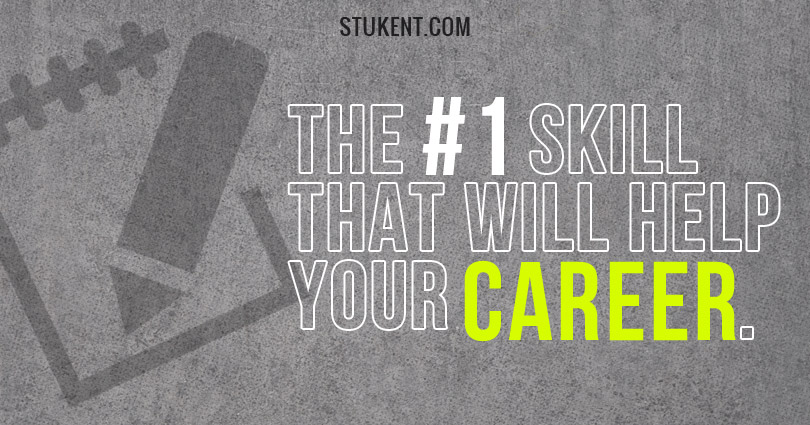During my first day of freshmen English, I received quite the surprise. Our class was assigned a five-page paper that was due the next week. Not that I hadn’t written papers in high school, but this assignment made me quickly realize that I would be writing a lot more in college.
As college progressed, I wrote my share of papers, but never really embraced the art of writing. In other words, I wrote out of necessity and not because I enjoyed it. I wasn’t able to improve this skill as much as I would have wanted. Now with almost a decade of corporate work experience behind me, I’ve come to the conclusion that being able to write effectively is the most important skill one can have.
I’m not debating that interpersonal communication and work ethic skills aren’t crucial. These skills help round out solid employees. However, I believe the ability to write effectively is the cornerstone of a well-rounded employee, and one who will better succeed.
When I talk about writing effectively, I mean coming off in a trustworthy manner. As a bare bones example, you’ll probably trust someone who sends you a well-composed email over someone who sends an email with many grammatical errors. Especially with digital marketing, most communication occurs through the written word where presenting yourself as trustworthy (and knowing what you are talking about) is vital. You will certainly have phone and in-person meetings that require their own adeptness, but you set the stage through your writing. Think of it this way. Showing that you are an effective writer sustains meaningful relationships because it represents your desire to communicate better.
So, how can you hone your writing skills? The answer is repetition.
Practice. Practice. Practice.
Just like anything else, you won’t become a better writer unless you work at it. However, aside from emails, you may ask where you can find more writing opportunities. There are many to be had! You can:
- Document/update processes for the team (for example, explain how to do keyword research)
- Contribute to the company blog
- Comment on industry blog articles
- Take and format meeting notes
There’s no magic bullet for becoming a better writer. Even though I’ll list additional tips in this article, experience is ultimately the number one factor for improvement. Continually practice and you will become a better writer.
Be Concise
Aside from grammatical errors, the most common issue I encounter is writing that is too wordy. It may be an email or a blog post, but what could be said in fewer words is dragged out. Let’s look at this passage as an example.
“The campaign saw a great return last month as our efforts helped improve performance. After discussing our thoughts, we decided to go with more focused ad copy and then executed that plan. The new ad copy included…”
Instead, this text could be written as:
“The campaign’s return increased significantly last month as we implemented more focused ad copy. The new ad copy included…”
We still get the same message across, but in a concise manner. You may have the desire to include more text to better explain your thoughts, however, less is more. You get to the point while respecting your reader’s time, which nicely segways into the next tip.
Anticipate
Effective writers play two roles. The first role is the composer of the message. The second role is that of the reader. It’s not enough to write the content as you must anticipate the needs of your reader. These needs may come in the form of:
- Questions
- Examples
- Associated research
- Rebuttals or follow-up inquiries
You may write what you perceive to be a well-crafted message, but it has to make sense to the reader. For example, if you send a report without any analysis, your client will email back asking for insight. Instead, review the report and anticipate your client’s feedback and craft your message appropriately. There still may be follow-up, but there is less potential for ongoing back and forth that could have been resolved in the initial message.
The same concept applies to other items such as blog posts and internal documents. For every post I write I try to imagine the questions and/or counter arguments that could potentially be addressed. I work these answers into my posts so I can address them proactively. Think ahead and your writing will be that much more meaningful.
Frame Your Writing
My final suggestion is similar to anticipating reader needs but aims to provide a concrete layout for content. For whatever you write, think about how you want to present your content. Going back to our report example, you may want to write your email in three stages.
- Present the report with your analysis.
- Explain what tasks were conducted over the last month and why.
- Speak to upcoming deliverables and the potential impact.
This tactic isn’t any different from an outline you would create for a presentation. You’re just applying the same principle to your everyday writing.
Final Thoughts
For whatever reason, effective writing is an underemphasized skill. Perhaps it’s the notion of the effort involved or a perception that the written word isn’t as important as the spoken. Regardless, becoming a better writer is crucial in all aspects of your daily work life. By consistently improving your writing, you not only help to advance your own career but also compliment your other skills. Remember that effective writing leads to more productive interactions and a greater sense of trust. If you aren’t already, make writing a more consistent practice, and you will see improvement.
As a bonus, I’ve listed some great resources for basic writing principles and creating compelling content.
- GrammarBook – This site provides explanations, examples, and even quizzes of the most common grammatical and punctuation rules.
- Grammarly – A grammar tool that proofreads your work and provides grammatical edits. Please note that there is a free and paid version of the tool.
- Copyblogger – Along with content marketing solutions, this site provides tips for more effective web copywriting.






